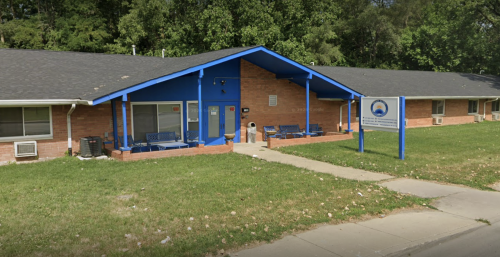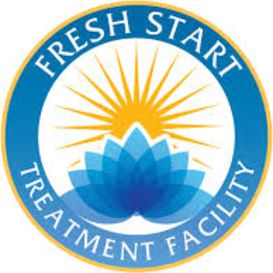

Fresh Start Treatment Facility
Treatment Focus
You can admit to this center with a primary substance use disorder or a primary mental health condition. You'll receive support each step of the way and individualized care catered to your unique situation and diagnosis.
Primary Level of Care
Offering intensive care with 24/7 monitoring, residential treatment is typically 30 days and can cover multiple levels of care. Length can range from 14 to 90 days typically.
This provider hasn't verified their profile's information. Are you the owner of this center? Claim your listing to better manage your presence on Recovery.com.
Treatment Focus
You can admit to this center with a primary substance use disorder or a primary mental health condition. You'll receive support each step of the way and individualized care catered to your unique situation and diagnosis.
Primary Level of Care
Offering intensive care with 24/7 monitoring, residential treatment is typically 30 days and can cover multiple levels of care. Length can range from 14 to 90 days typically.
Private Pay
You pay directly for treatment out of pocket. This approach can offer enhanced privacy and flexibility, without involving insurance. Exact costs vary based on program and length of stay. Contact the center for specific details.
Fresh Start Treatment Facility
Fresh Start Treatment Facility
About Fresh Start Treatment Facility
Fresh Start Treatment Facility helps people overcome drug and alcohol addiction with care that treats both the body and mind. The center offers support at every stage of recovery, from detox to long-term care. Staff create personalized treatment plans and address mental health issues like anxiety, depression, and substance use disorders.
Personalized Care Through Counseling
Fresh Start uses group and one-on-one therapy to help people learn healthy ways to cope. The center offers detox services, behavioral therapy, and medication support. These therapies help people understand why they use substances and how to change their habits. The team builds trust and supports each person throughout the healing process.
Sober Living and Safe Support
At Fresh Start, people can live in safe, private homes while they recover. The center supports sober living by teaching everyday skills and helping people stay strong in their recovery. Staff provide ongoing care after treatment to make sure each person stays on track and has the tools they need to stay sober.
Center Overview
Treatment Focus
You can admit to this center with a primary substance use disorder or a primary mental health condition. You'll receive support each step of the way and individualized care catered to your unique situation and diagnosis.
Joint Commission Accredited
The Joint Commission accreditation is a voluntary, objective process that evaluates and accredits healthcare organizations (like treatment centers) based on performance standards designed to improve quality and safety for patients. To be accredited means the treatment center has been found to meet the Commission's standards for quality and safety in patient care.

Pricing and Program Length
Estimated Center Costs
Center pricing can vary based on program and length of stay. Contact the center for more information. Recovery.com strives for price transparency so you can make an informed decision.
Levels of Care







Treatment
Specializations
Alcohol
Using alcohol as a coping mechanism, or drinking excessively throughout the week, signals an alcohol use disorder.
Anxiety
Anxiety is a common mental health condition that can include excessive worry, panic attacks, physical tension, and increased blood pressure.
Depression
Symptoms of depression may include fatigue, a sense of numbness, and loss of interest in activities. This condition can range from mild to severe.
Drug Addiction
Drug addiction is the excessive and repetitive use of substances, despite harmful consequences to a person's life, health, and relationships.
Who We Treat
Men and Women
Men and women attend treatment for addiction in a co-ed setting, going to therapy groups together to share experiences, struggles, and successes.
Approaches
Individual Treatment
Individual care meets the needs of each patient, using personalized treatment to provide them the most relevant care and greatest chance of success.
Personalized Treatment
The specific needs, histories, and conditions of individual patients receive personalized, highly relevant care throughout their recovery journey.
Therapies
1-on-1 Counseling
Patient and therapist meet 1-on-1 to work through difficult emotions and behavioral challenges in a personal, private setting.
Relapse Prevention Counseling
Relapse prevention counselors teach patients to recognize the signs of relapse and reduce their risk.
Conditions We Treat
Anxiety
Anxiety is a common mental health condition that can include excessive worry, panic attacks, physical tension, and increased blood pressure.
Depression
Symptoms of depression may include fatigue, a sense of numbness, and loss of interest in activities. This condition can range from mild to severe.
Substances We Treat
Alcohol
Using alcohol as a coping mechanism, or drinking excessively throughout the week, signals an alcohol use disorder.
Co-Occurring Disorders
A person with multiple mental health diagnoses, such as addiction and depression, has co-occurring disorders also called dual diagnosis.
Drug Addiction
Drug addiction is the excessive and repetitive use of substances, despite harmful consequences to a person's life, health, and relationships.
Languages
Aftercare
Experience
Personal Amenities

We love hearing about your treatment experience
Help individuals and families seeking treatment by sharing your first-hand experience with this treatment provider. Review Guidelines.





